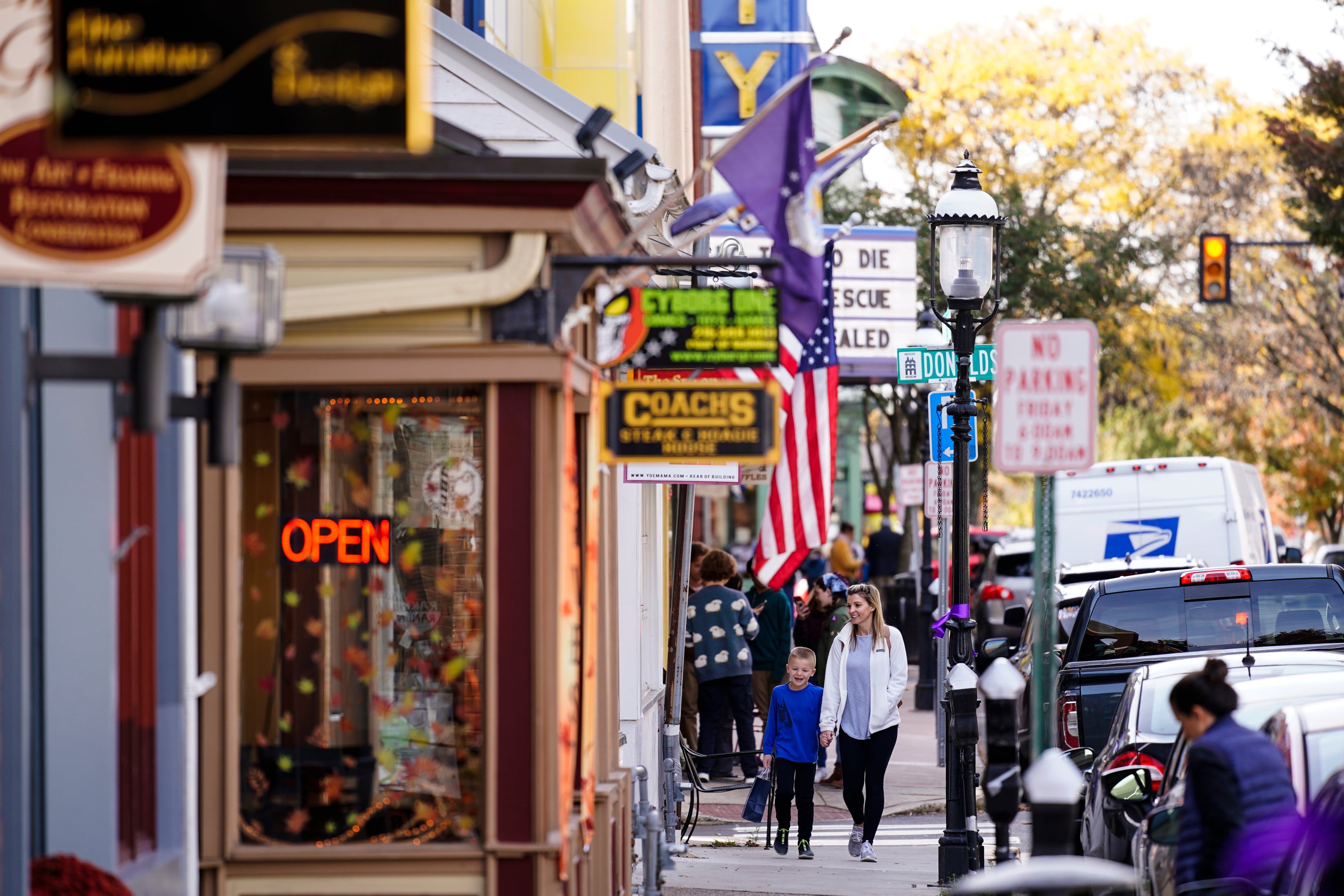By Anne D'Innocenzio
Amazon says it plans to open a clothing store in a Southern California mall later this year, a first for the online behemoth and a fresh challenge for already struggling traditional retailers.
Amazon said Thursday that the store, which will sell women’s and men’s clothing as well as shoes and other accessories, will open at the Americana at Brand mall in Glendale, California.
Shoppers will get personalized recommendations pushed to their phones as they browse the new Amazon Style store stocked mostly non-Amazon fashion labels, the Seattle-based company said. Amazon declined to offer any more details on the labels.
The store will be about 30,000 square feet, similar in size to a Kohl's but about one-third the size of other department stores, like Macy's. But it will offer more than double the number of styles as traditional stores do because it will show one of each style on display while keeping the rest in the back room. The selection is chosen by Amazon curators who also use feedback provided by millions of customers shopping on Amazon.com.
The store concept is likely to add more strain on the already challenged traditional clothing sellers, particularly department stores that have been scrambling to adapt to shoppers’ shift to online shopping that has been accelerated during the pandemic.
Simoina Vasen, managing director of Amazon Style, declined to comment on rollout plans of the new store concept or sales projections. Amazon didn't give a precise date for the opening of the Glendale store.
The move is the latest foray in physical stores for Amazon, which has been opening grocery stores, cashierless convenience locations and book stores. In 2017, it bought Whole Foods Market for more than $13 billion.
Amazon's move into physical fashion stores comes as it unseated Walmart's No. 1 spot in clothing sales last year, helped by the pandemic-induced e-commerce explosion. Wells Fargo forecast in a report in March 2021 that Amazon’s clothing and footwear sales in the U.S. increased by about 15% in 2020 to more than $41 billion. That's about 20% to 25% above Walmart. That represents 11% to 12% share of all clothing sold in the U.S. and 34% to 35% share of all clothing sold online.
Amazon has been making a big push into fashion in recent years, including selling its own labels, and in September 2020, it launched an online shop called Luxury Stores.
Still, Amazon faces challenges in attracting the fickle fashion shopper and hopes to solve the pitfalls of in-store clothing shopping by turning to high tech features.
Upon entering the Amazon Style store, shoppers will see a curated set of items on display. By using the Amazon Shopping app, shoppers can scan an item's QR code to see sizes, colors and overall customer ratings. Shoppers can add these items to fitting rooms or, if they don't need to try something on, they can send it directly to the pickup counter. Prices will range from $10 to $400.
Amazon says its algorithms will spit out real-time recommendations as shoppers keep scanning items that they see. Shoppers can also fill out an online survey of their preferences for style and fit. When shoppers enter the fitting room, they will find the items they requested. Using a touchscreen in their fitting rooms, they can also request other items.
“Amazon Style completely reimagines what’s possible in the fitting room, turning it into a personalized space where customers can continue to shop a seemingly endless closet of great styles," Vasen wrote in an Amazon blog.












